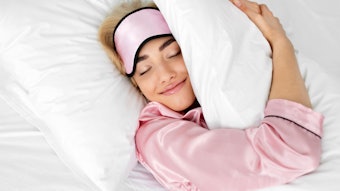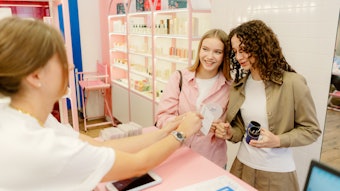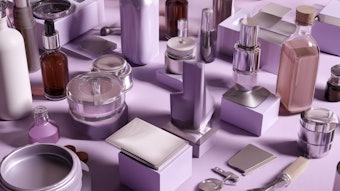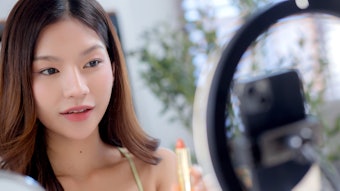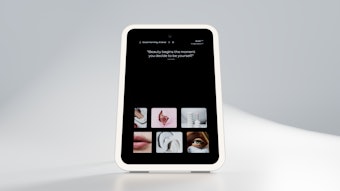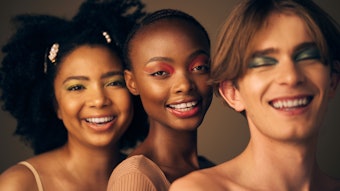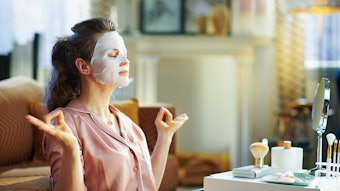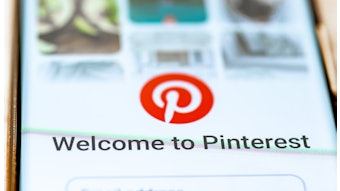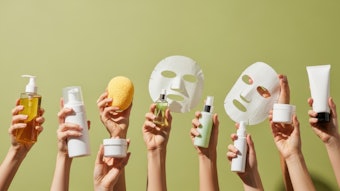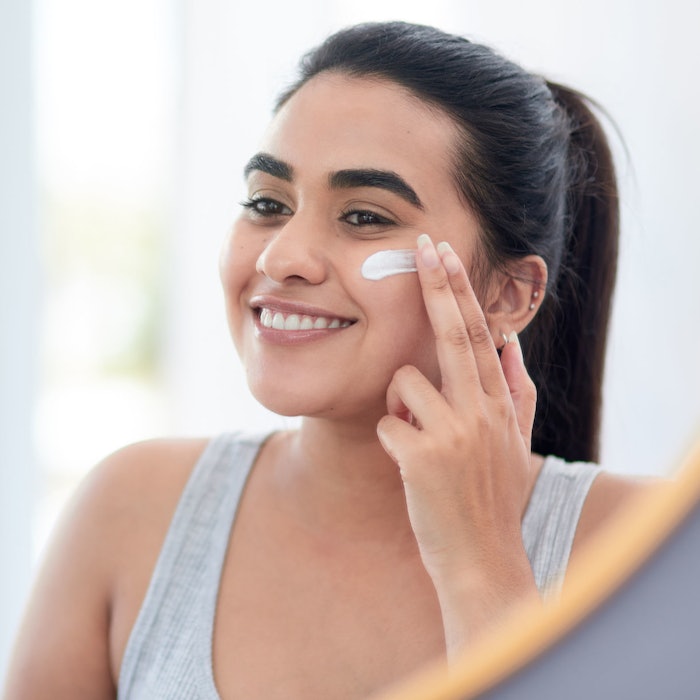
Editor’s note: In this edition of Next in Skin, Katerina Steventon (KS), Ph.D., steps out of her regular column format to share a Q&A with Helga Hertsig-Lavocah (HHL) of Hint Futurology. This discussion is a spin-off from Hertsig-Lavocah’s presentation during the most recent Anti-aging Skin Care Conference held in London, titled “[The] Futurology of Well-Aging – Focus on Self-Confidence: Exploring Conflict Between Utopia and Evolutionary Societal and Biological Systems.” It is presented here for the industry to consider, as the messages we send and products we create shape the very well-being of our consumers.
Biology, Cultural Pressure at Odds with Self-embrace
KS: Beauty has always been both revered and feared.
- In some cultures, it’s seen as something dangerous, with women told not to be “too pretty,” as though beauty is a flame that must be controlled, lest it burn their reputation or their family’s honor.
- Yet in other societies, the pressure to be beautiful is almost suffocating – an expectation that weighs heavily on girls from a young age.
- The real question is: how do we help women embrace their own beauty and feel seen for who they are, without the burden of cultural expectations?
HHL: This topic is also relevant for boys, with “lookmaxxing” being the male equivalent of the pressure that most women face across a lifetime, although women currently bear the harsher judgment. Ten years ago, Pantene ran a ‘Boss/Bossy’ ad campaign1 highlighting how women are criticized for being strong or confident, while men are praised for the same qualities. Criticism of appearance is now, unfortunately, universal and contributes to high rates of mental and emotional distress in our youngsters, across all genders. A care-free youth is a utopia today.
Values vs. Appearance and the Price of Insecurity
KS: But isn’t that where culture and religion have stepped in? They’ve taught us values like kindness, empathy and acceptance. These forces remind us to look beyond the surface, to see the person inside. Beauty shouldn’t be everything. Yet it often is.
Look at the Dove Real Beauty Sketches’ campaign from 2013.2 Strangers described women in much kinder, more flattering terms than the women described themselves. It exposed how deeply insecurities run. Even Dove’s latest celebration of aging and diversity can’t completely escape the beauty standards we’ve built over centuries.
HHL: At least the conversation is shifting. Brands like L’Oréal are starting to say “look good, not just good for your age.”3 But I can’t ignore that children (kids under 14) accounted for nearly half of drugstore skin care sales in 2023.4 It’s like we’re grooming insecurity.
At the same time, Pamela Anderson goes makeup-free and gets celebrated by some but torn down by others. So is our industry really supporting positive aging, or is it just another marketing ploy or “age-washing” – like green-washing?
We’re in a strange place. We talk about confidence and self-expression, but beauty remains entangled with biology and status. Beauty has always been about more than aesthetics, it’s a signal of desirability, of biological success. L’Oréal’s message resonates, but the pressure never fully disappears.
It’s the same reason why plastic surgery is booming – it’s cheaper, more accepted and seen as empowering. But doesn’t that just perpetuate the trope: “I’m not ugly, I’m poor?” It erodes self-esteem while pretending to build it up.
Skin Care as Self-worth
KS: And yet, on a personal level, beauty routines can be transformative. In my fifteen years of running a skin care clinic, I’ve seen the way a simple skin care regimen can change how someone feels about themselves. It’s not just vanity, it’s about self-care. When we nurture ourselves, when we engage in a ritual that improves our appearance, we reinforce our self-worth. Beauty may be skin deep, but self-esteem goes far beyond that.
HHL: Shows like “The Bad Skin Clinic” and “Dr. Pimple Popper” reveal that clearly. People suffering from extreme skin conditions are often emotionally trapped, and their transformations aren’t just about how they look – they’re about reclaiming their lives. Skin care becomes a lifeline, a way to heal both inside and out.
KS: Skin care is more than just a routine, it’s a way to affirm self-value every day. It’s about recognizing that we’re worth taking care of, no matter our age or background. But the bigger battle is how we free ourselves from the societal standards that make beauty feel like a burden. How do we reconcile to “love yourself as you are” with the evolutionary pull of beauty as a status symbol?
HHL: Maybe it’s impossible, this idea that society will fully embrace beauty in all forms. As long as beauty is tied to reproduction, desirability and status, it will remain elusive. The challenge isn’t in how we look but in how we think, how we judge others, as well as ourselves.
KS: Perhaps that’s the goal for our industry – seeing beauty not as a standard to meet but as a reflection of the way we care for ourselves and each other, transcending the surface and moving into a deeper, more meaningful realm.
The Digital Beauty Dilemma
HHL: Looking to the future and the digital realm, I’m afraid we have a mountain to climb, as digital avatars and filters accentuate stereotypical notions of beauty. This widens the gap between our online identity – how we think the other wants to perceive us – and our actual physicality. Beauty shouldn’t be about bravery (putting on a brave face), but about instilling a deep and true confidence in self.
KS: In my clinic, I have the privilege of working with women who are deeply invested in their beauty and skin care yet embracing a natural approach. Together, we embark on a journey of understanding how lifestyle factors shape their appearance and well-being. We discuss the allure of digital filters and perfect lighting online yet emphasize the need for them to surround themselves with people who celebrate their authentic selves.
Inner/Outer Healing Power of Ritual, Touch
Authenticity allows them to shine with the help of self-care tools, such as curated skin care routines, facial massage techniques and makeup, to enhance their natural beauty. We also explore grounding, meditative experiences that encourage emotional reflection. Teaching these transformative moments is essential to my consultations, as it brings a sense of acceptance, inner peace and radiance to complement their outer beauty.
HHL: Your work is grounded in ritual and the power of touch. [In connection], I’d like to end with recently published research about young people with attention deficit hyperactivity disorder (ADHD)5 benefiting from tactile massage. While it was a small study, it proves that touch, and giving ourselves permission to care, has profound benefits that go beyond beauty.
KS: Touch is deeply significant for the brain, and I have dedicated my work to advancing the field of facial touch in relation to skin care routines. The interplay of scent and music with touch and meditative practices creates an experience that nurtures self-esteem and emotional well-being. This enriching practice can be woven into daily life as a gentle reminder of our true self to ease the demands of even the most stressful days.
References
1. YouTube video. (Accessed 2024, Nov 20). Pantene 'labels against women' digital ad. Available at https://www.youtube.com/watch?v=luLkfXixBpM
2. Dove website. (2015, Sep 23). Dove real beauty sketches. Available at https://www.dove.com/uk/stories/campaigns/real-beauty-sketches.html
3. @kellyhoppen. (2023, Nov 6). Really excited to unveil...TikTok. Available at https://www.tiktok.com/@kellyhoppen/video/7298289384292486433
4. Gecker, J. (2024, Aug 31). Young girls are using anti-aging products they see on social media. The harm is more than skin deep. AP News. Available at https://apnews.com/article/influenced-skincare-routine-mental-health-f59bb09114ab93323e3a47197a1ad914
5. University of Gothenberg website. (2024, Oct 16). Tactile massage helped young people with ADHD. Available at https://www.gu.se/en/news/tactile-massage-helped-young-people-with-adhd
